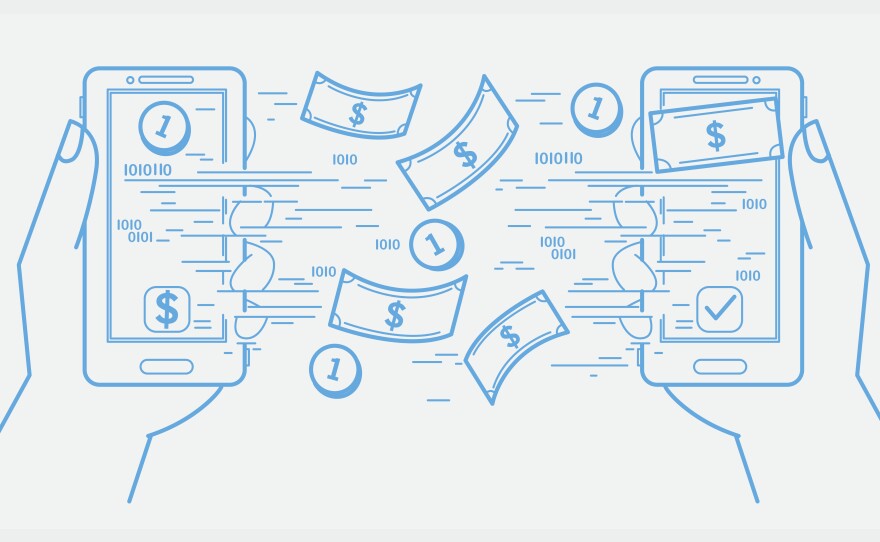The popular crowdfunding service Patreon has backed off plans to change its payment structure, after widespread, vocal and passionate opposition from creators and their fans.
Last week, the site announced it would attach a surcharge to every individual donation pledge — a change that would negatively impact anyone trying to send small quantities of money to multiple artists they support. Many users immediately pulled their support from the platform.
On Wednesday, the site reversed course, apologized to members who have already lost money, and issued a mea culpa.
"We messed up," founder and CEO Jack Conte said in a public letter released Wednesday. (He reportedly delivered a similar, more forceful assessment in private conversations with Patreon users.)
"We're sorry," he wrote.
Patreon, a service popular with independent musicians, writers and artists, allows fans, or "patrons," to back "creators" through small, repeated payments to them. Think of Kickstarter, except that instead of paying one lump sum for one project, a patron might pay a creator a dollar or two every month — or every time the creator releases a new comic, video or post.
Since it was launched in 2013, the platform has become a source of income for more than 50,000 artists, supported by more than 1 million patrons. This August, The Verge described Patreon as "the economic engine of the Internet."
Some of those artists have vast followings and receive thousands of dollars a month through the service, an amount Patreon celebrates as "life-changing income." Most receive far, far less — but smaller sums can be life-changing, too.
Patreon was not just widely used, but unusually admired — "the service inspires praise that would be almost unfathomable for most web platforms," The Verge wrote.
Much of that affection went up in smoke last week, when Patreon announced a new fee structure that would tack a surcharge onto individual pledges, in the name of "predictability and consistency."
Ready for some math?
Previously, Patreon subtracted fees from a supporter's pledge. If you gave a dollar a month to support a webcomic artist, Patreon would get five cents, a third-party company like PayPal would get between two and 10 cents, and the artist would get the remaining 85 to 93 cents. Multiple pledges were grouped together, which helped keep processing costs low but could create confusion for users.
Patreon's new idea was to run each pledge individually and add a charge on top of the pledge amount. The fee would be 35 cents plus 2.9 percent. For that same $1/month pledge, you'd now pay $1.38; Patreon still gets five cents, the artist gets a consistent 95 cents, and the rest goes to cover transaction costs.
An extra 38 cents might not seem like much. (Apparently, it didn't seem like much to Patreon.)
But users immediately realized that the change would burden small donations the most. Somebody giving one $15/month donation to his favorite video series would pay $15.78. But people supporting 15 beloved podcasts with $1/month each would see their payment spike from $15 to more than $20 — with more than a quarter of that vanishing into processing fees.
The response was almost universally negative — with fury and deep disappointment from both patrons and creators, as supporters pulled their $1 pledges.
At first, people thought that Patreon would be raking in bundles of cash under the system. Patreon updated its post to explain that wasn't the case and tried to convince creators and patrons that the changes were beneficial.
That backfired, too. When users realized that all the extra money would go to third-party processing companies, bewilderment was added to the fury.
"Everybody loses," wrote Alexander Kashev, in a letter where he explained why he reduced his Patreon pledges from supporting 23 creators to four creators. "I initially thought that you, the company, would win by cashing in more fees than before. Now that I read your blog update, I see that, literally, everybody loses."
It wasn't just a matter of dollars. Creators and supporters who deal in small sums of money felt abandoned. They tied the change to statements Patreon has made about prioritizing "life-changing" sums of money, the kind earned by a tiny fraction of Patreon creators.
Sculptor and cartoonist Shing Yin Khor described the fees as a "breach of trust" that ignores the meaningful relationship between patrons and creators.
"We've heard you loud and clear," Conte, the CEO, said in his Wednesday update. "We're not going to rollout the changes."
The policy reversal has been received positively, although there's still plenty of frustration circulating throughout the Internet.
And Conte paired the change in position with an abject plea for forgiveness.
"We recognize that we need to be better at involving you more deeply and earlier in these kinds of decisions and product changes," he told his furious users. "I know it will take a long time for us to earn back your trust. ... We are nothing without you, and we know that."
Copyright 2017 NPR. To see more, visit http://www.npr.org/.






